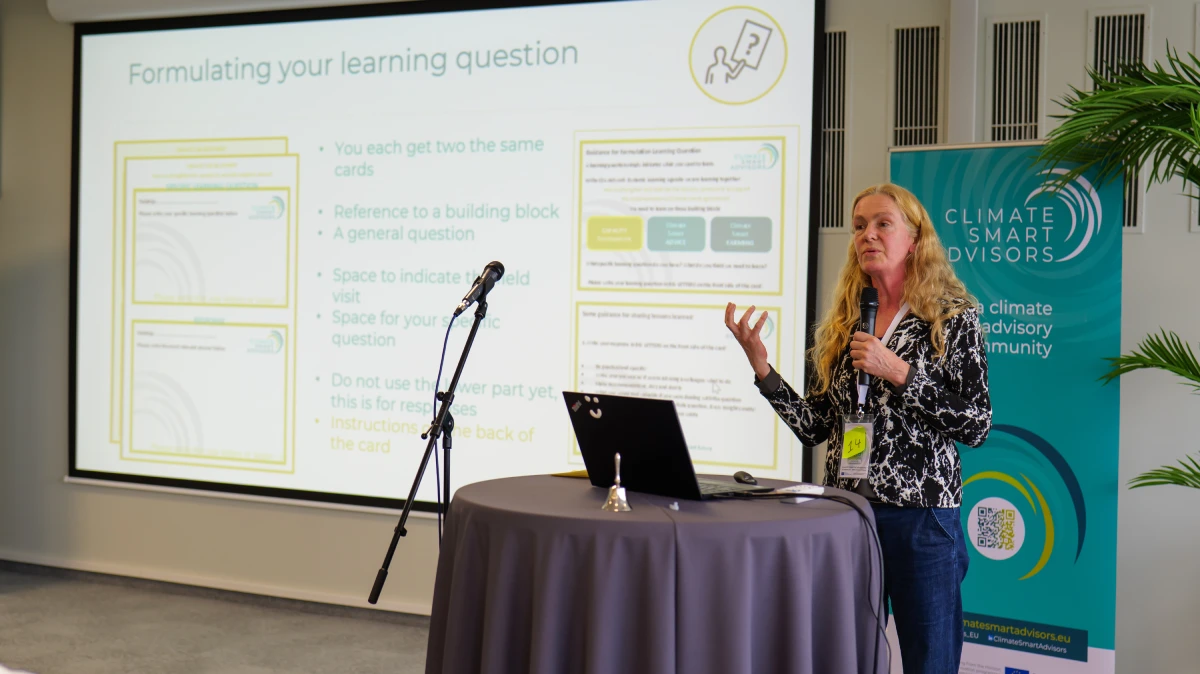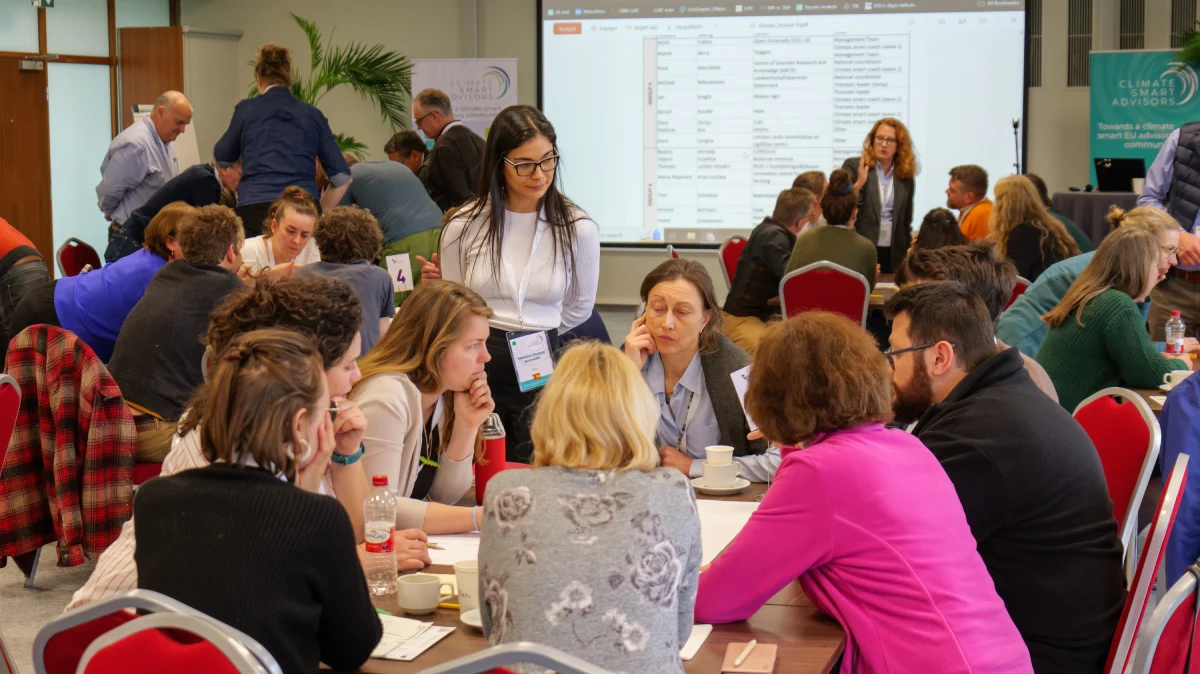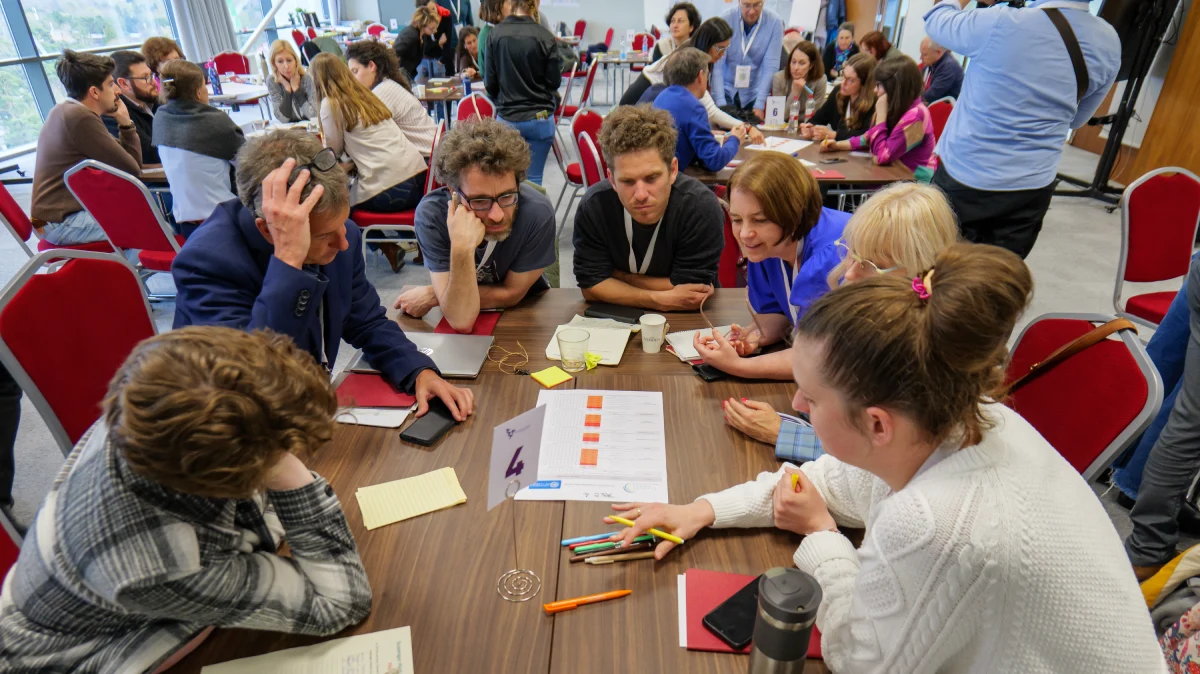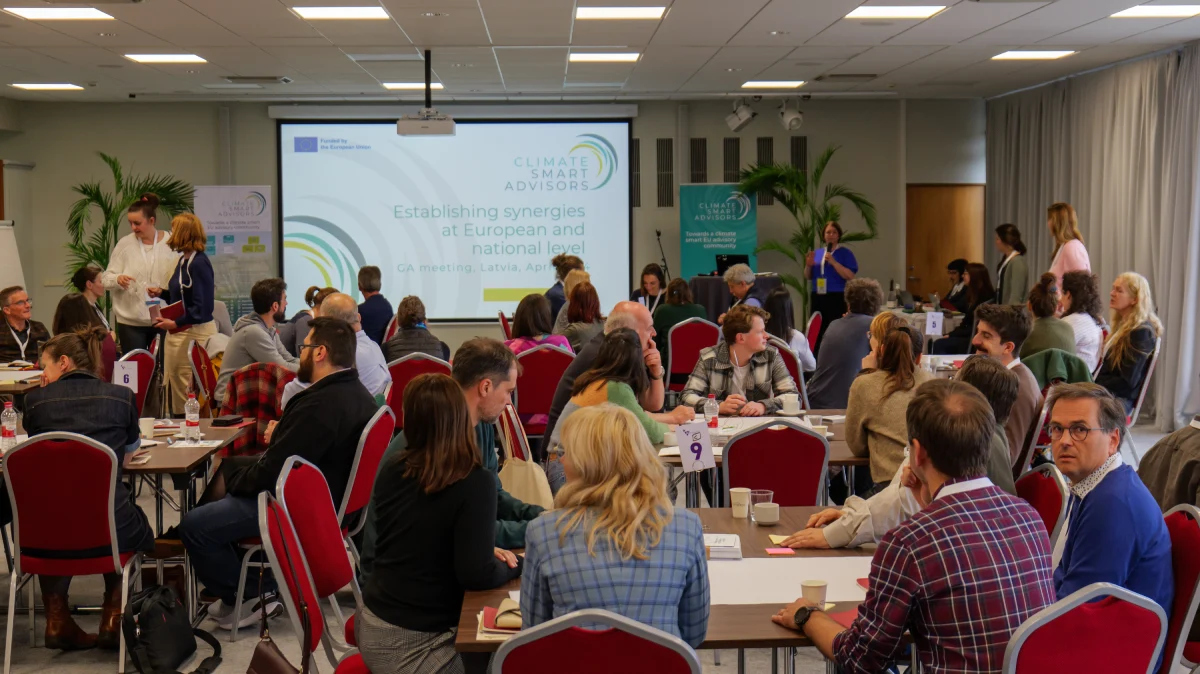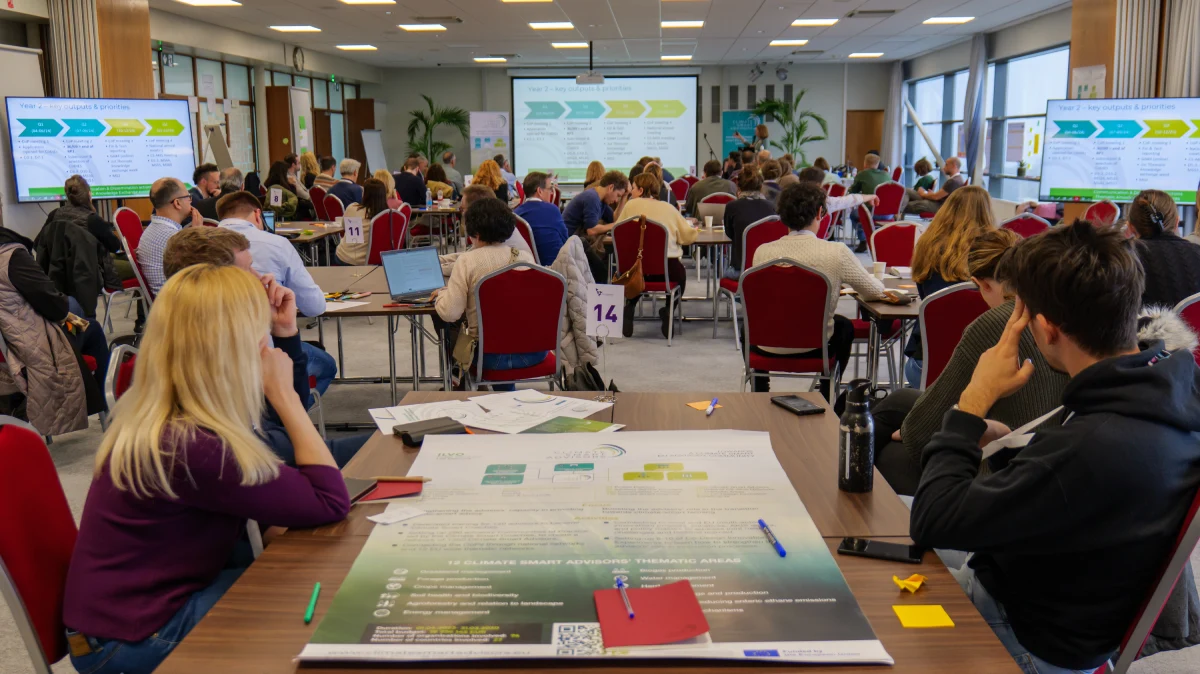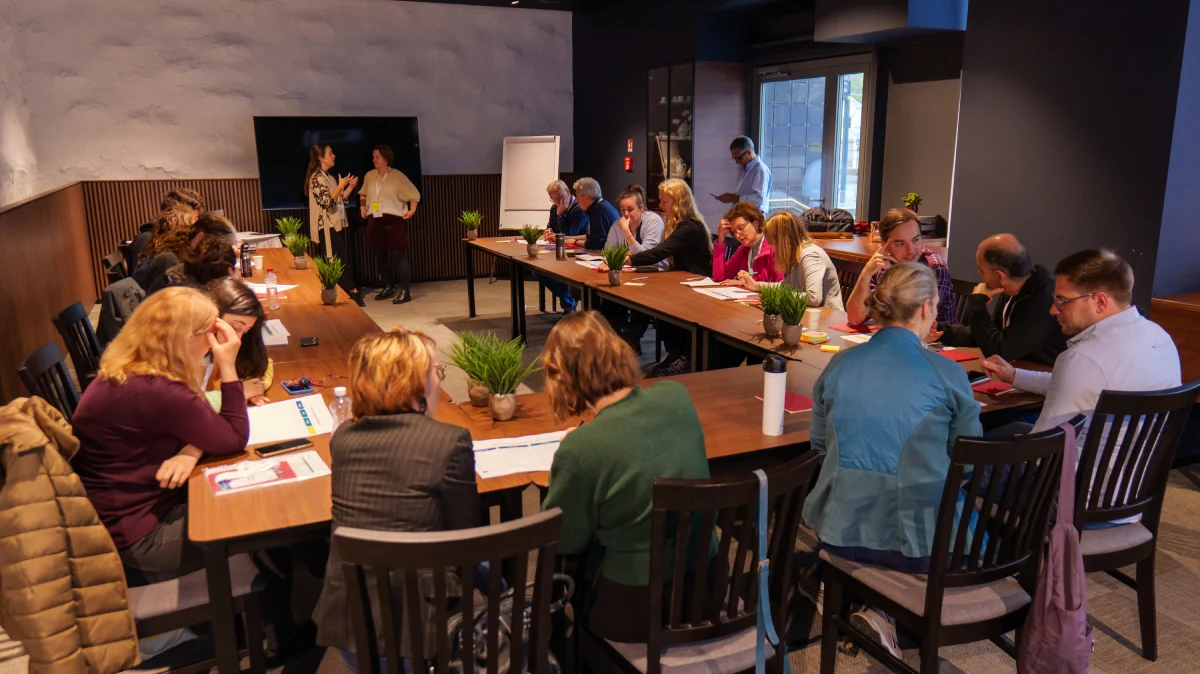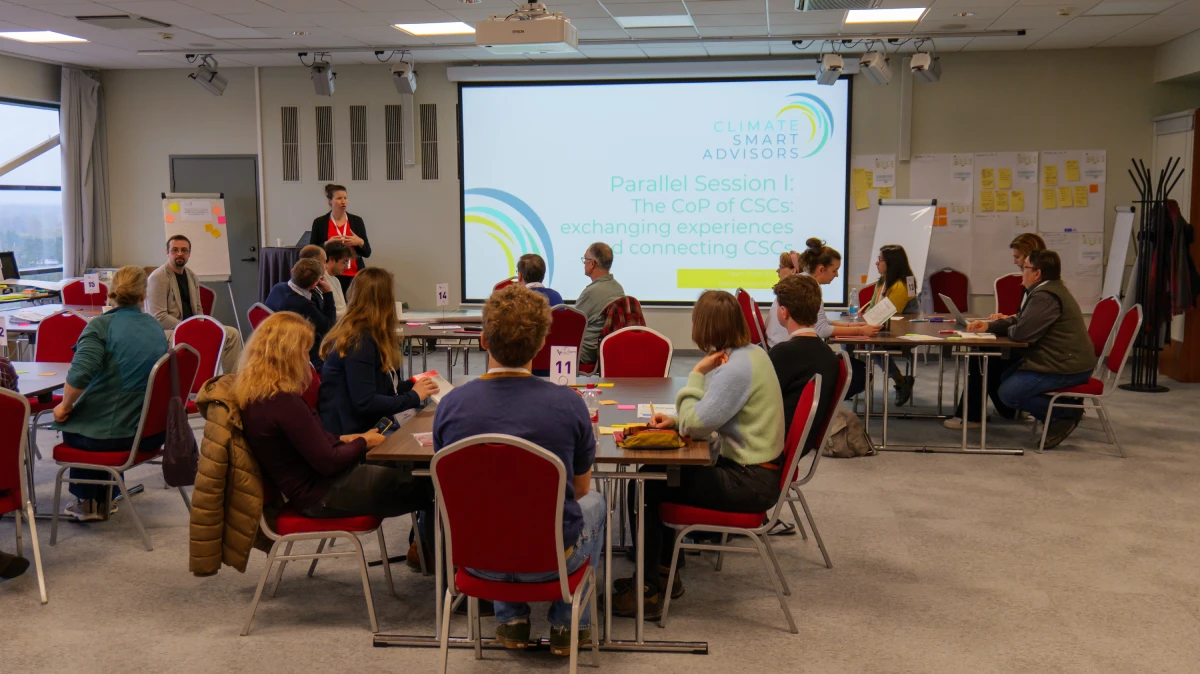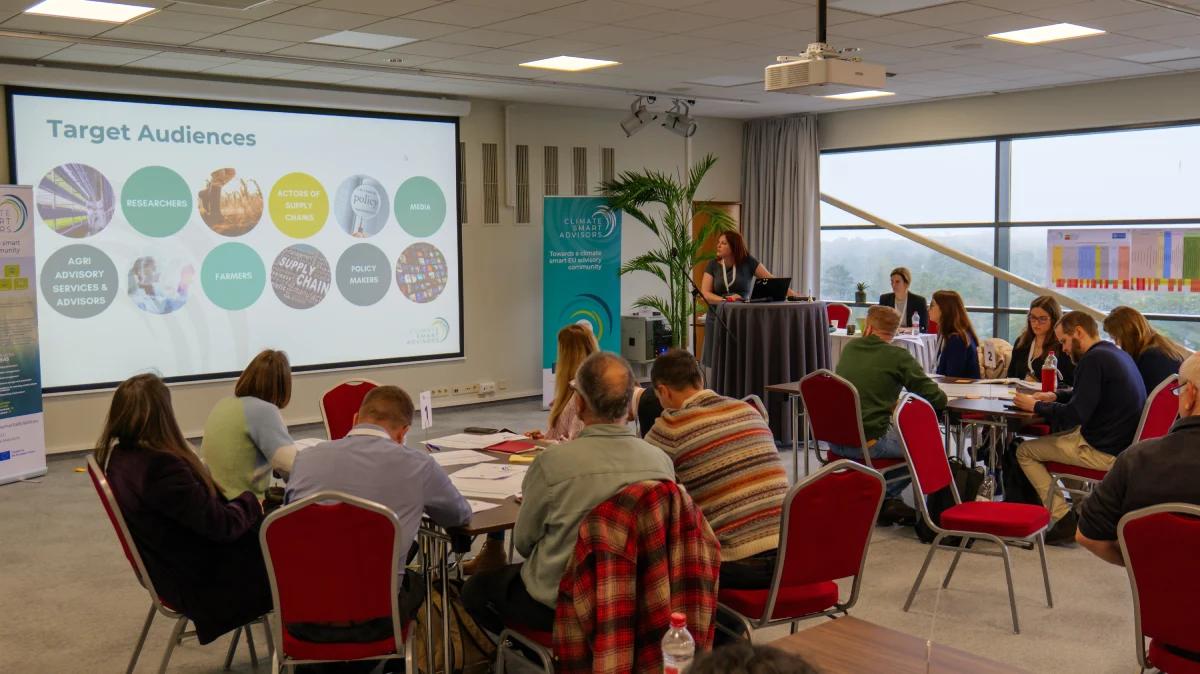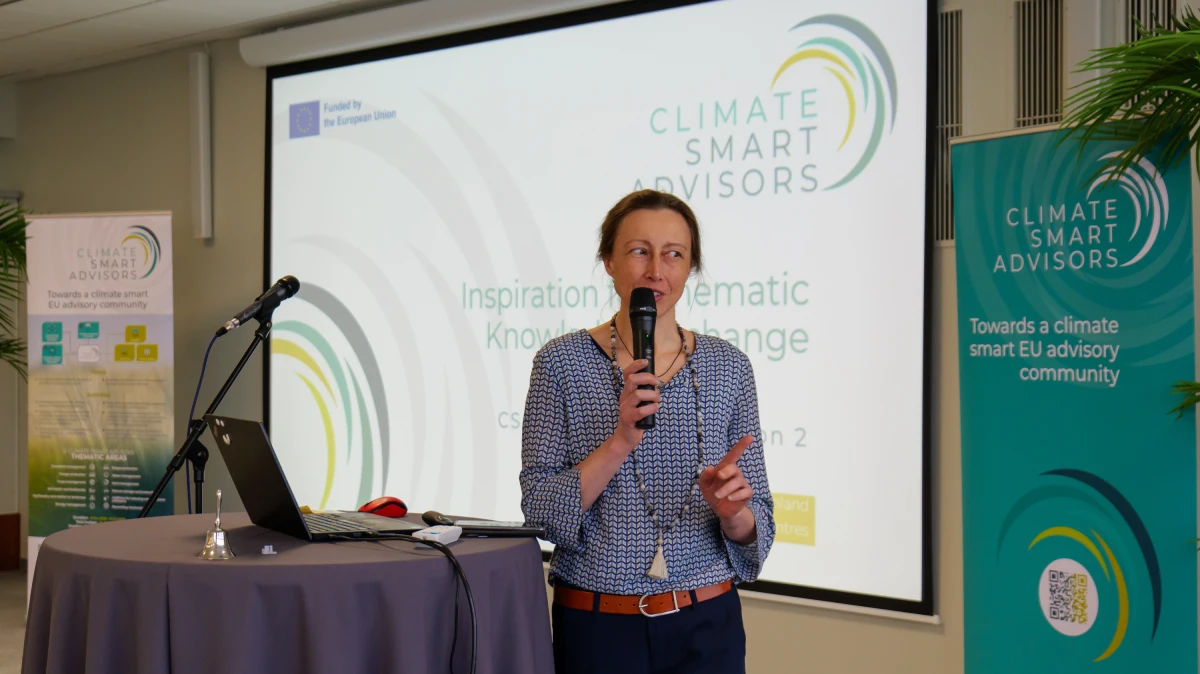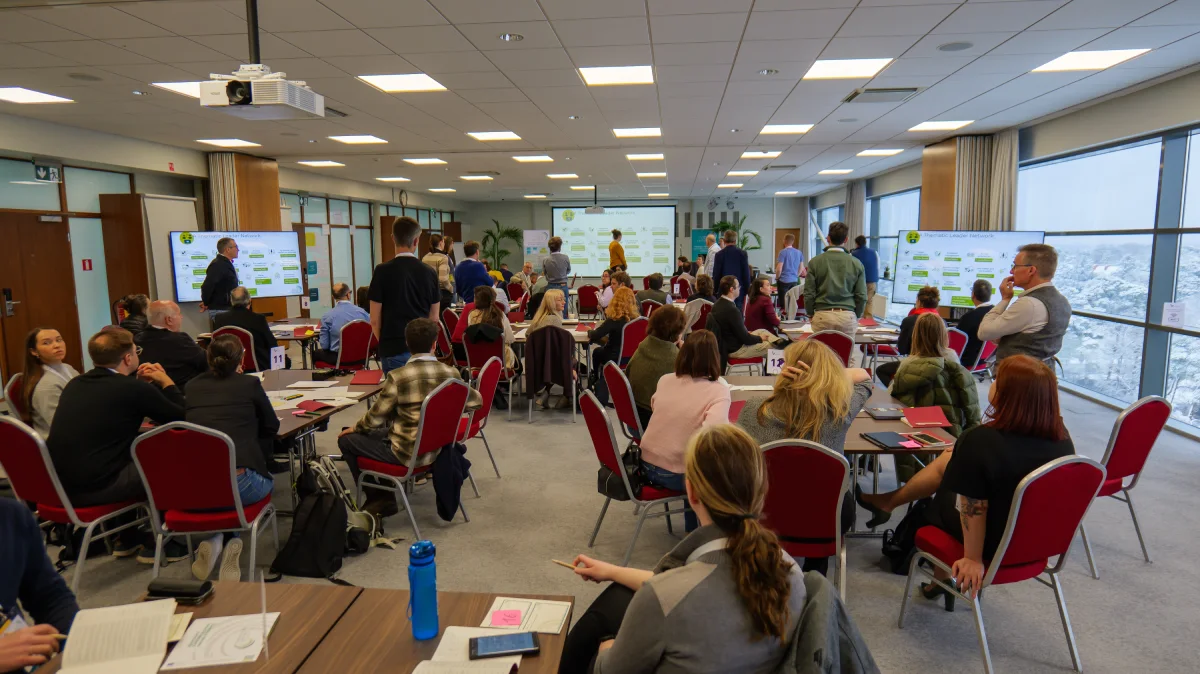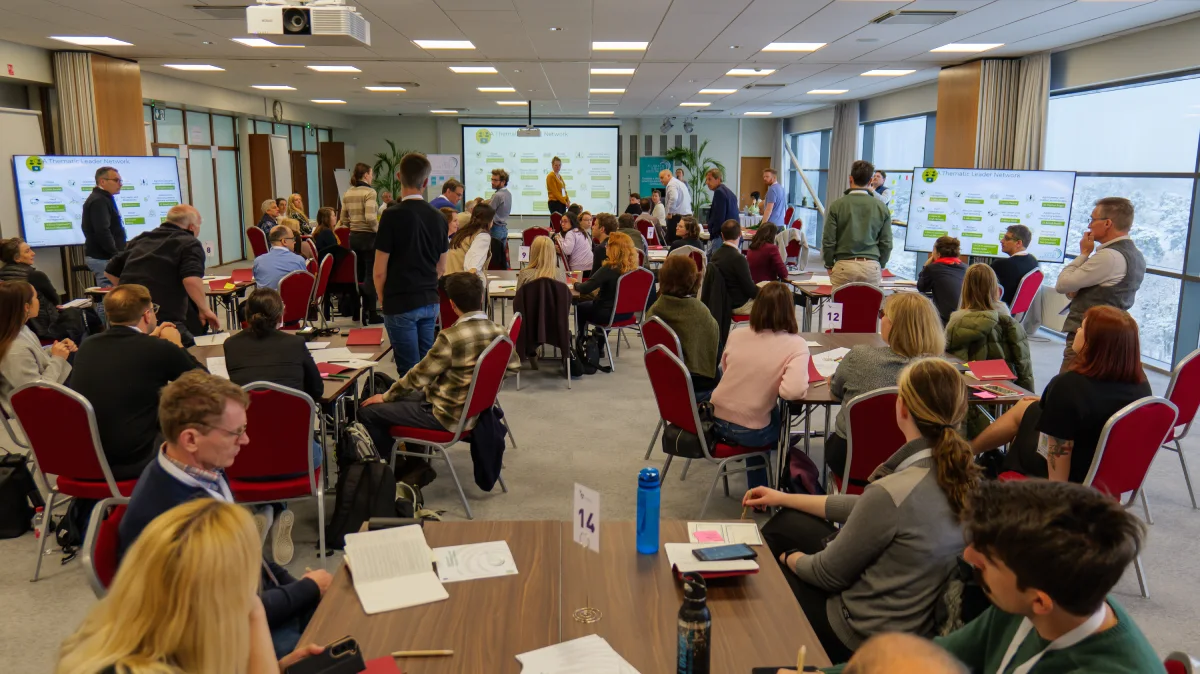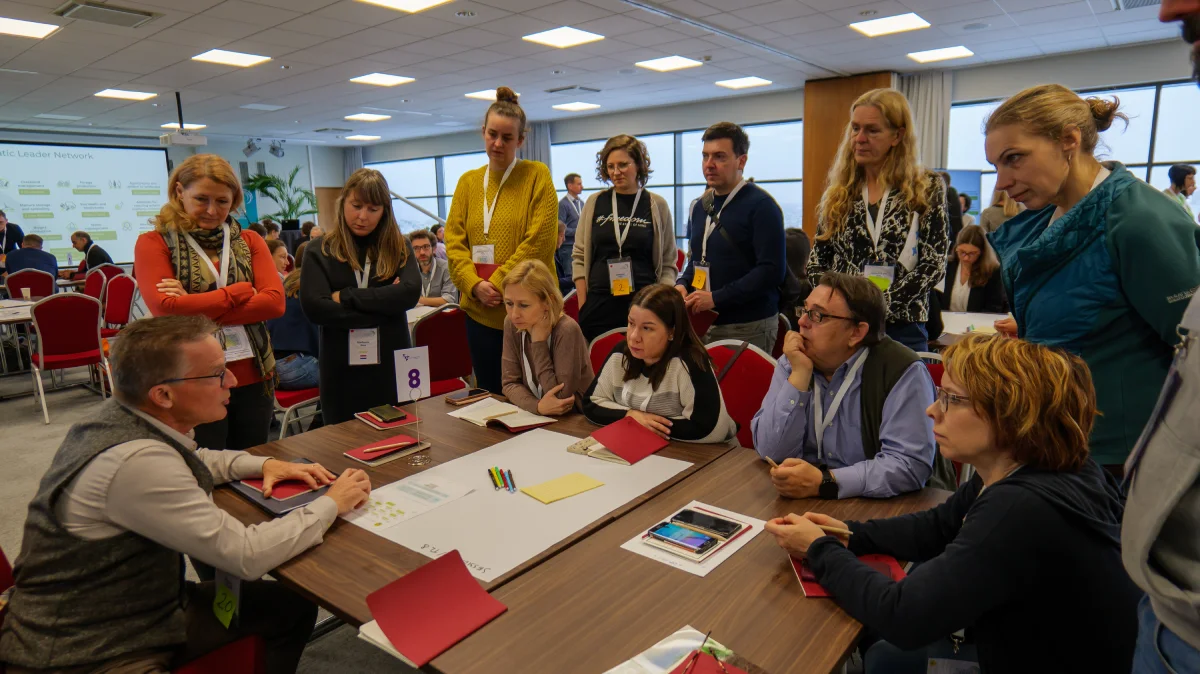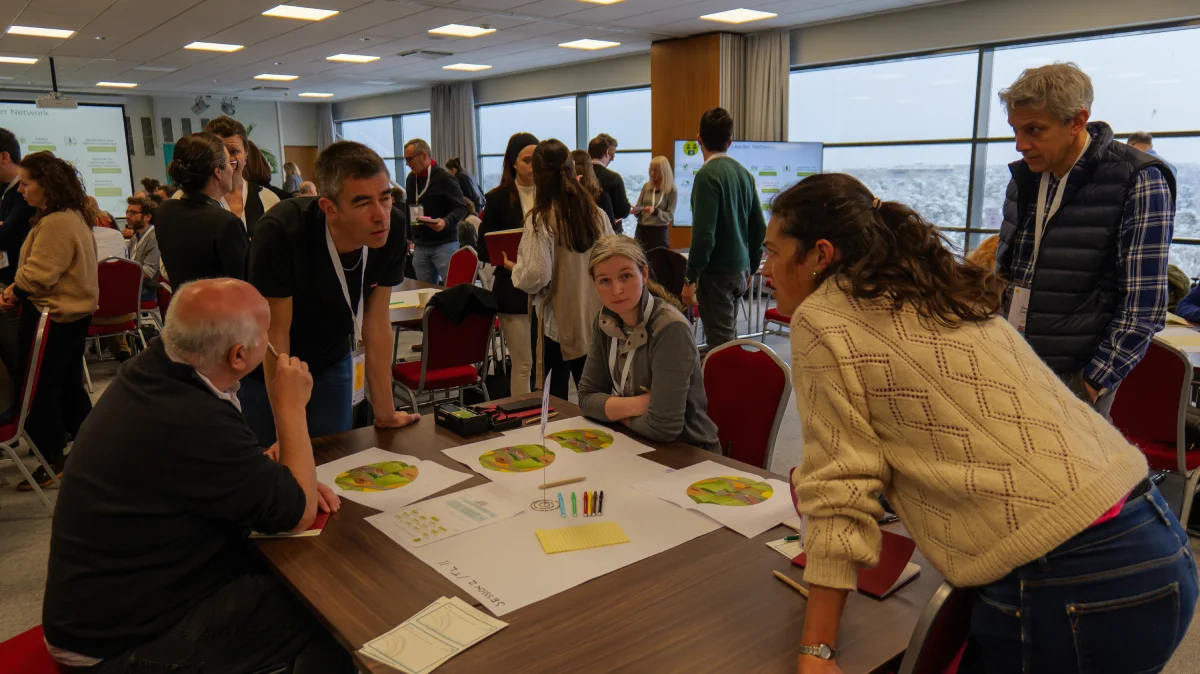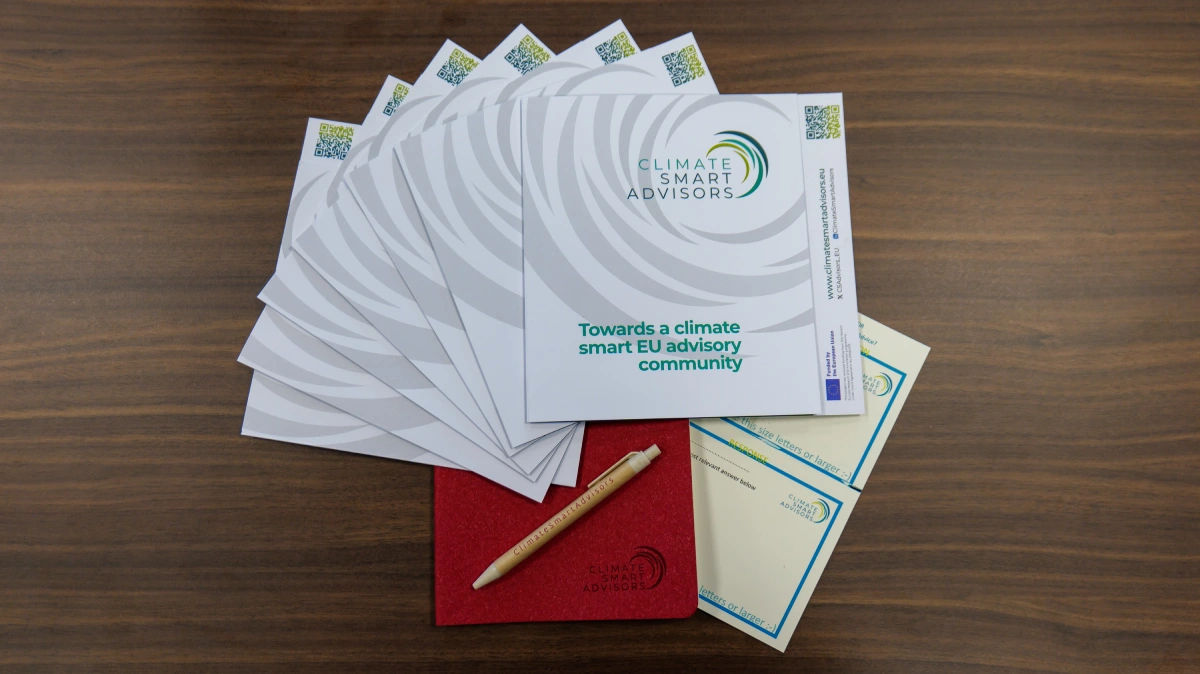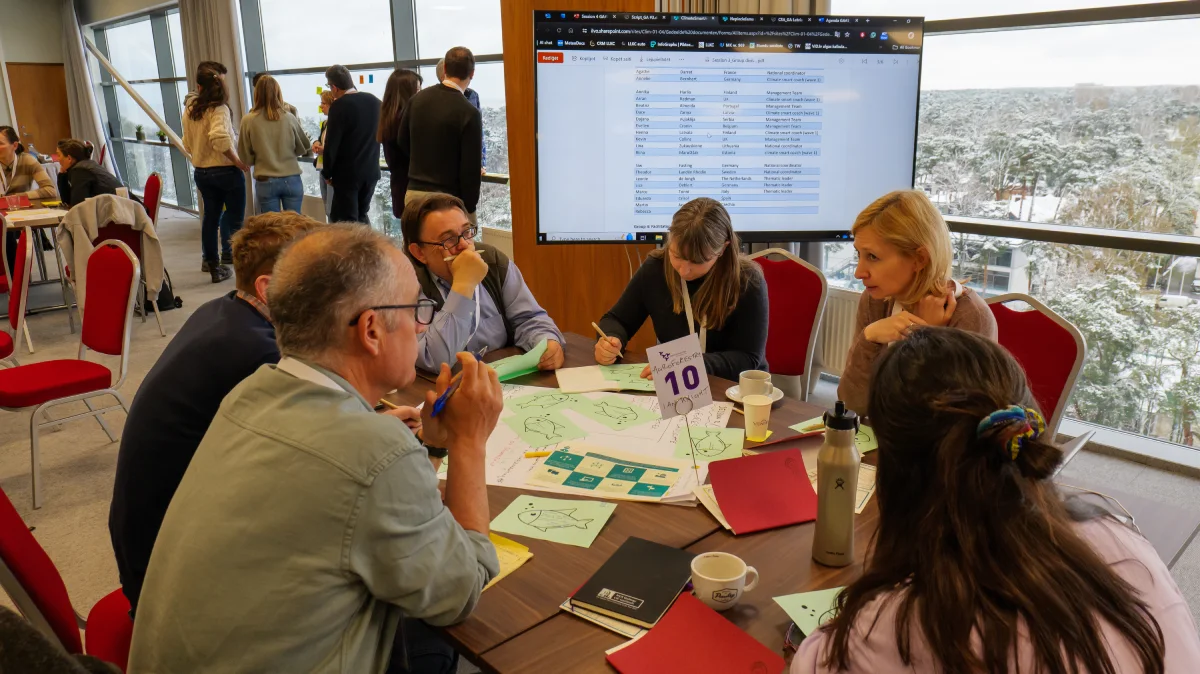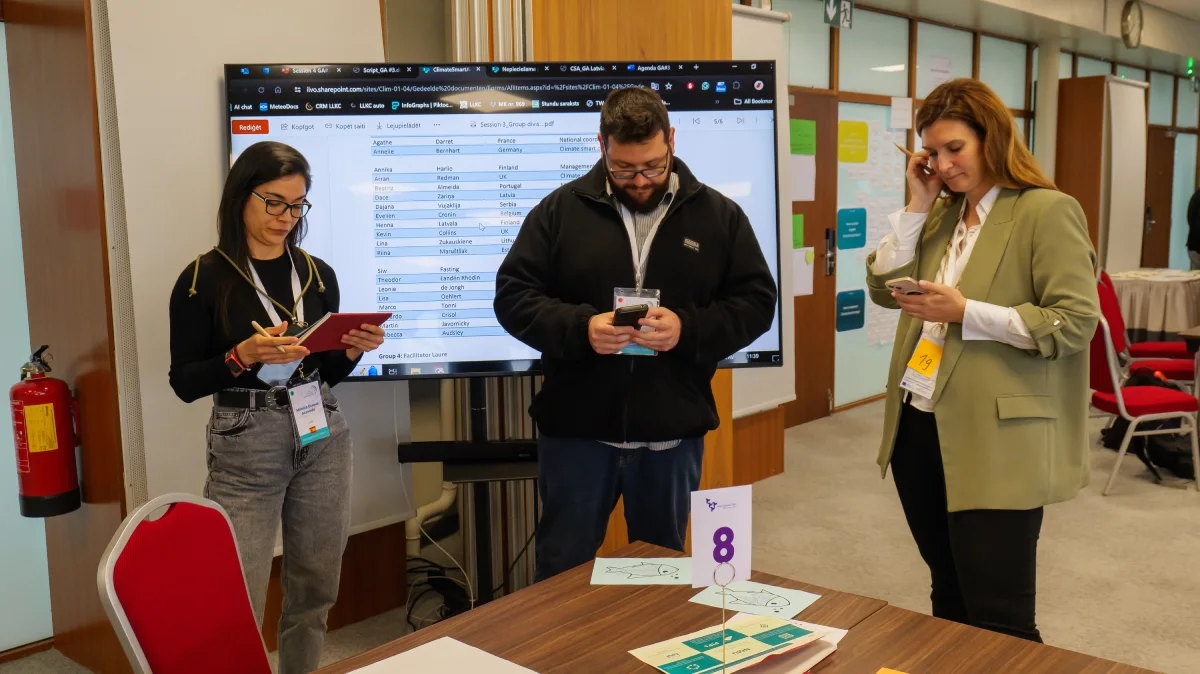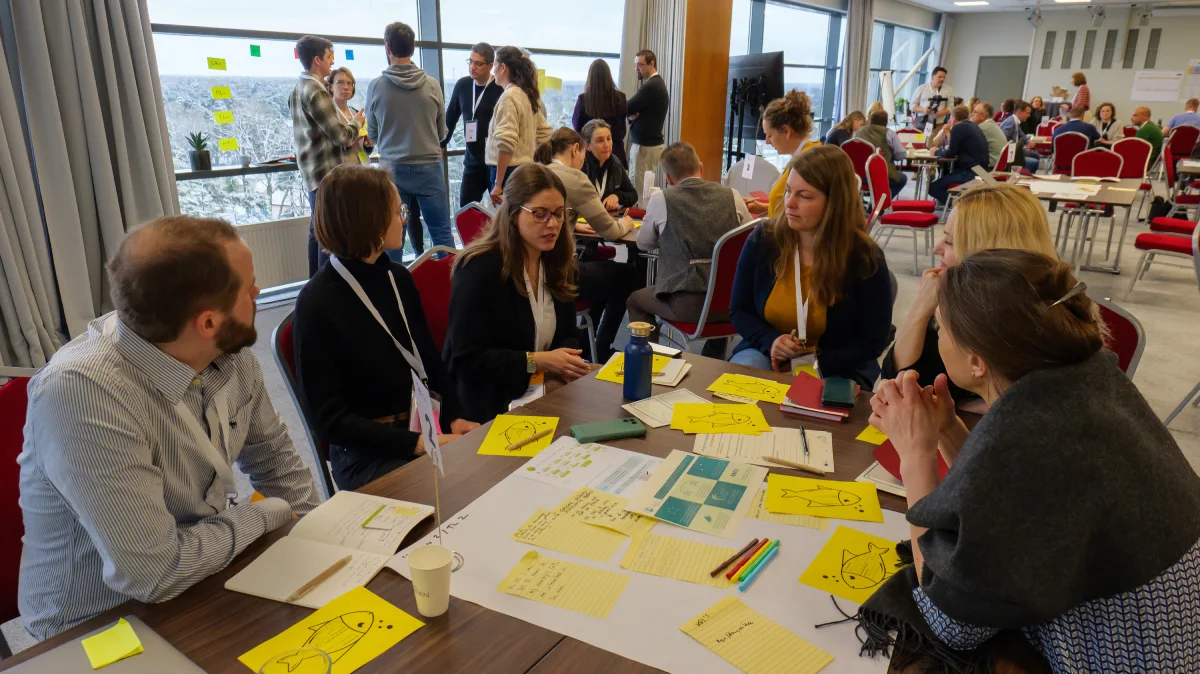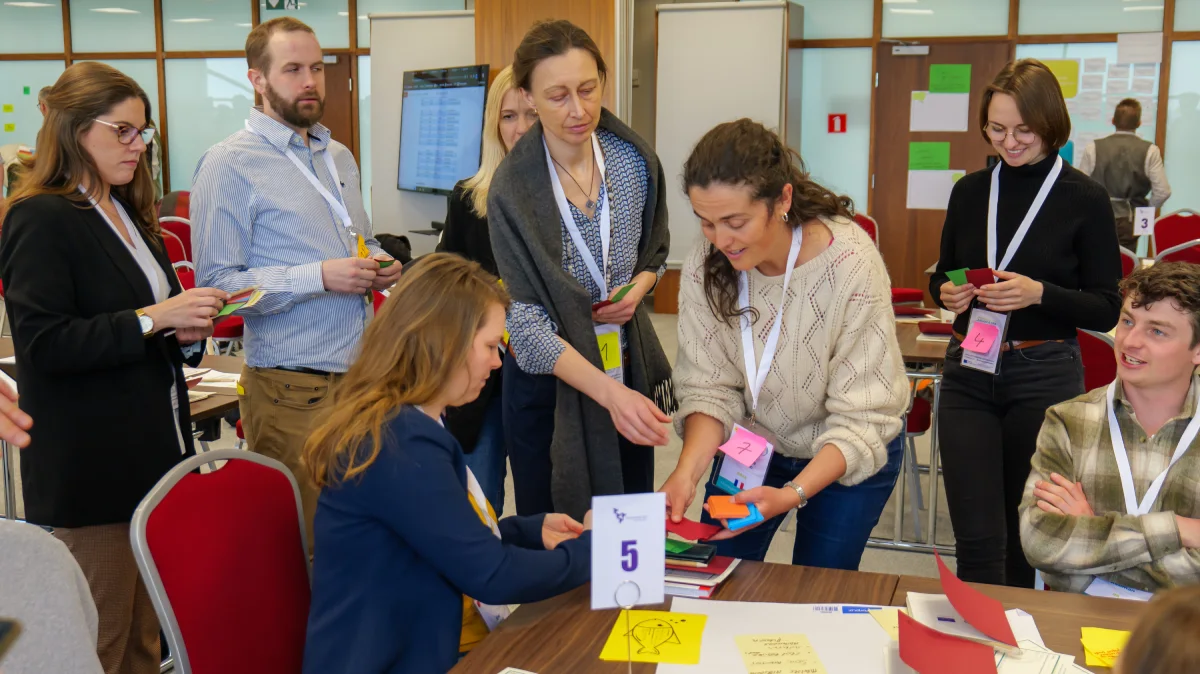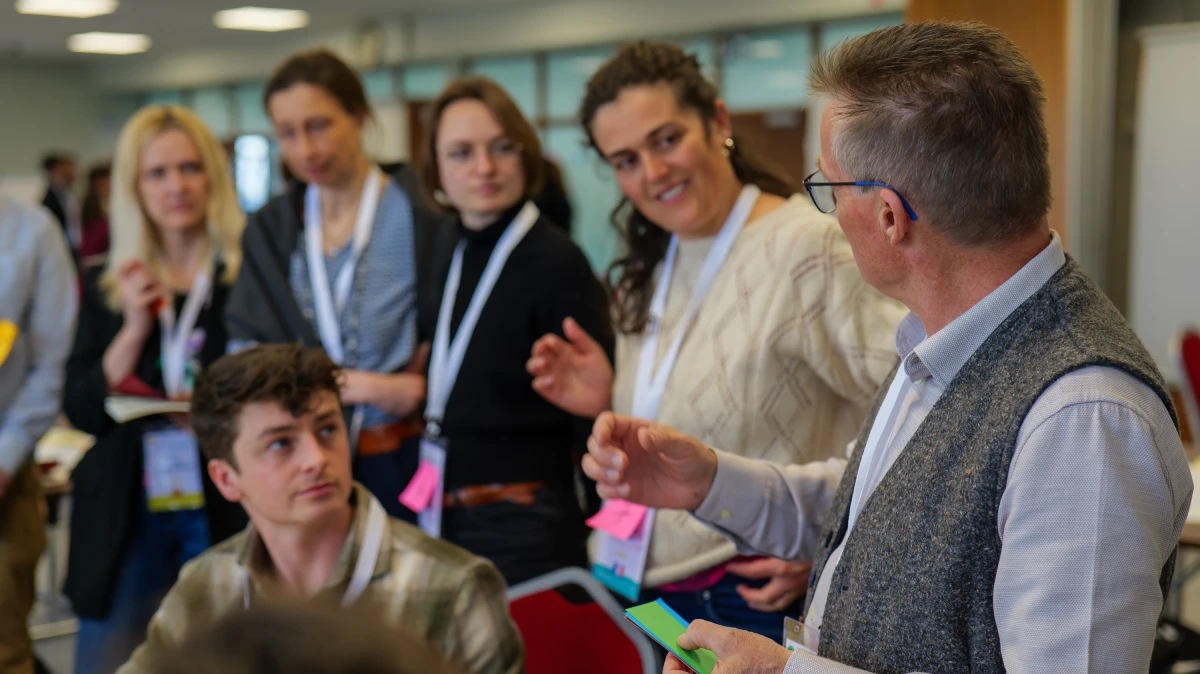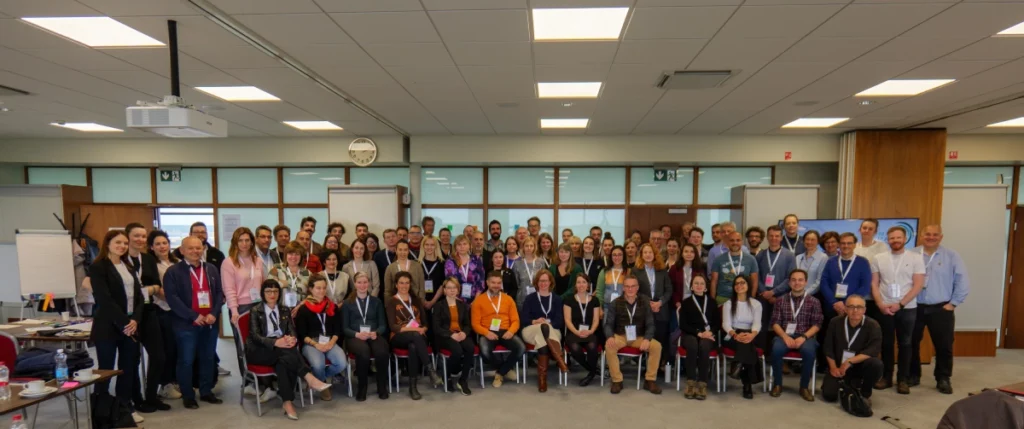
The General Assembly launched its first day with an array of energetic activities, setting a dynamic tone for the conference. Lies Debruyne, the Project Coordinator, extended a warm welcome to attendees, sharing project updates and kicking off a spirited scavenger hunt to foster connection and exchange among participants. The day commenced with the “Inspiration for Thematic Knowledge Exchange” workshop, expertly facilitated by Laure Triste from ILVO and Annika Harlio from ProAgria.
This session ignited engaging discussions among thematic leaders and participants, and provided inspiration on topics for thematic knowledge exchange events in the upcoming year. The workshop “Unravelling the First CoP Wave in Your Country,” also led by Laure Triste, introduced an innovative “Stinky Fish Bowl” format. This creative approach organized attendees into groups based on their roles, encouraging open discussions on responsibilities and the mutual support needed within the community, all while utilizing a visual feedback system with colored cards for enhanced clarity.
The day progressed with a preparatory session for upcoming field visits focused on Climate Smart Agriculture, spearheaded by Jorieke Potters from Wageningen University and Linda Sarke-Fedjajeva from LLKC. Employing the Dynamic Learning Agenda (DLA), the session prepared participants for meaningful exchanges and hands-on application in upcoming field visits. A highlight of the day was the visit to three farms in Latvia: a conventional dairy farm “Lestene”, an organic dairy farm “Rozbeki”, and a no till arable farm “Angi”.
These visits offered attendees a firsthand look at innovative climate-smart farming practices in a beautiful Latvia. Participants were warmly welcomed by the farmers and their families, providing a unique insight into the local agricultural scene.
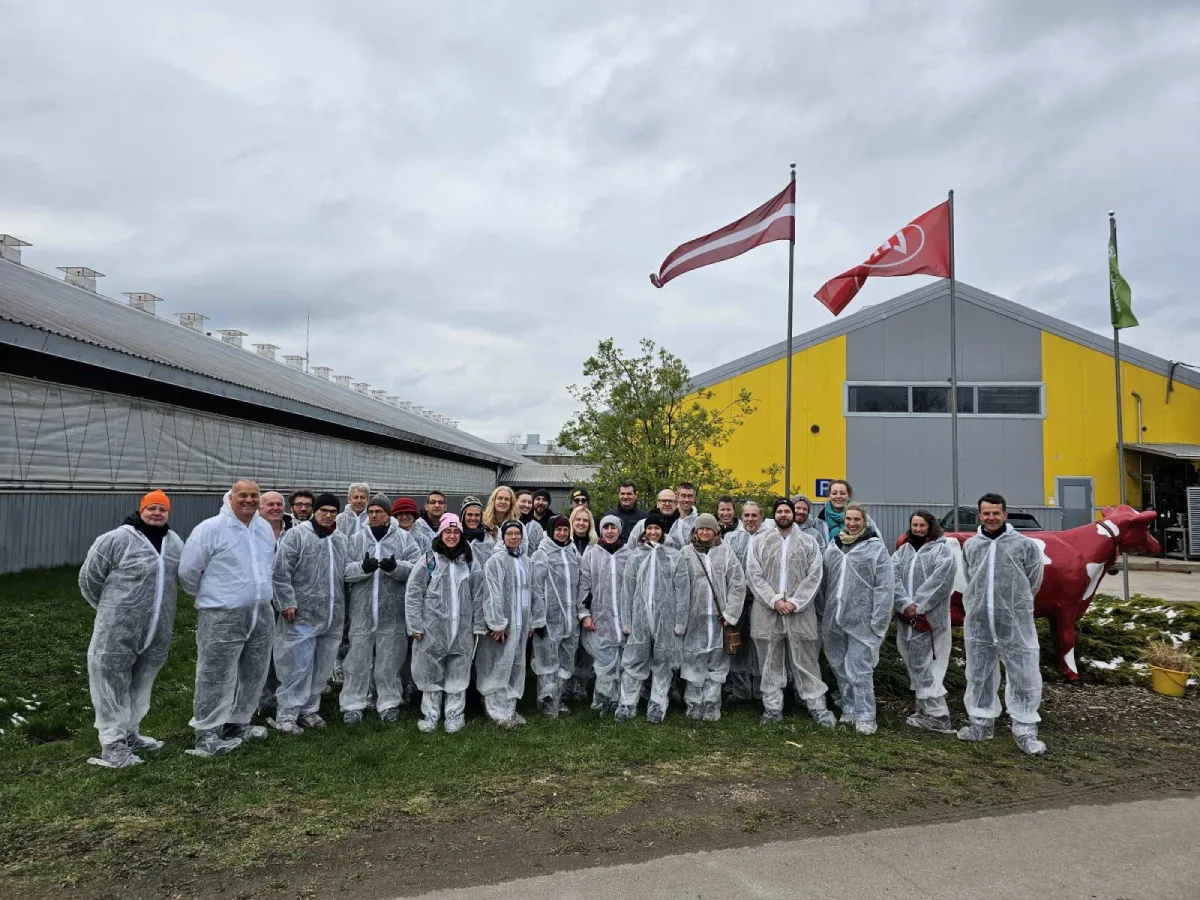
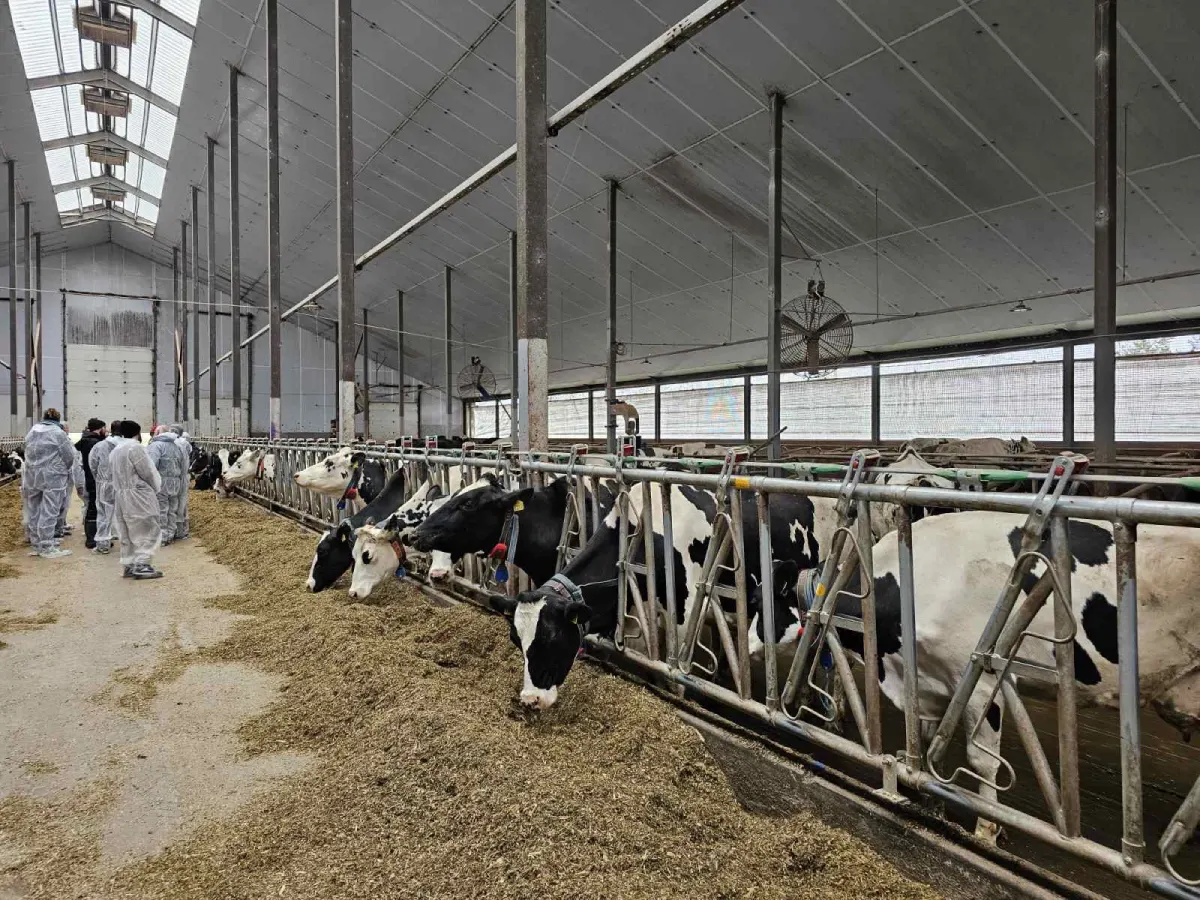
The second day of the ClimateSmartAdvisors General Assembly kicked off with the “CSA Quality Assessment” session, expertly led by Lies Debruyne from ILVO, alongside Isidora Čolić and Dajana Vujaklija from the BioSense Institute. This session focused on evaluating and advancing project management and on the importance of monitoring key performance indicators essential for driving project success. Following this, Jorieke Potters took the lead in a reflective session that delved into insights from recent field visits, weaving these observations seamlessly into the Monitoring, Evaluation, and Learning (ME&L) strategy. This engaging discussion laid the groundwork for the ME&L strategy for the upcoming year, highlighting a commitment to continuous improvement.
The momentum continued with the “Climate Smart Farming Knowledge Repository” session, facilitated by Vasilis Psiroukis and Sofia Mouseti from the Agricultural University of Athens, along with Caroline Evrat Georgel and Florence Bedoin from Institut de l’Elevage. Participants took a deep dive into the repository’s development and objectives, providing valuable feedback that will shape this resource. Cynthia Giagnocavo from Universidad de Almería then spearheaded an invigorating discussion on Multi-actor Innovation Projects (MIPs), White Spot analysis, and Co-design Innovation Experiments (CoDIEs). This session focused on presenting the results of a multi-criteria and white spot analysis of nearly 150 MIPs across Europe. This analysis provided valuable insights on ongoing initiatives, and will help in the upcoming selection of a first set of CoDIEs, which will be multi-actor experiments focused on co-creation and implementation of climate smart farming innovations.
The day wrapped up with a strategic session titled “Creating synergies at national and EU levels,” which brought together work packages 6, 7, and 8. Led by Maria Mendonca and Luis Mira from Consulai, Marleen Gysen from Boerenbond, and Isidora Čolić from BioSense Institute, this session fostered a dynamic exchange of good practices and strategies aimed at enhancing collaboration across national and European levels. This interactive discussion underscored the project’s dedication to building a cohesive and impactful outreach strategy. The second day ended with a social dinner at the Jurmala Hotel and Spa, drawing almost all attendees into a congenial atmosphere that was perfect for exchanging ideas, fostering connections, and enhancing collaboration across the project.
The last day of the General Assembly was bustling with activity, marked by 2 sets of 3 parallel sessions. In the first set, we had the ” CoP of CSCs” session, led by Laure Triste, which focused on strengthening the network among Climate Smart Coaches (CSCs). Participants actively shared their experiences and discussed strategies to enhance the effectiveness of Communities of Practice (CoPs). At the same time, Luis Mira guided the “Input for the Network of Research Stations” session, which aimed to gather input for an upcoming third level of experimental research stations in our climate smart farming network, next to ClimateSmartAdvisors and Climate Farm Demo. This session provided a platform for exploring innovative agricultural techniques and fostering future collaboration between the 3 projects. Cynthia Giagnocavo took the lead in the “InfoPoint on Designing a CoDIE” session, where she outlined detailed criteria for eligibility, budgeting, and expected outputs for the upcoming Co-design Innovation Experiments (CoDIEs). This session was instrumental in clarifying the design process and expectations, ensuring participants were well-informed and equipped to contribute effectively. In a second round of parallel sessions, Annika Harlio‘s workshop, “Preparing the KE Plan for the Upcoming Year,” was centered on drafting a comprehensive Thematic Knowledge Exchange (KE) plan, together with the Thematic Leaders.
Building on insights from the session on day 1, this session focused on setting actionable goals for the coming year, aiming to maximize the impact of knowledge dissemination. Dajana Vujaklija and Isidora Čolić, and Anita Dzelme from EUFRAS led a training session on “Communication and Dissemination” for National Coordinators. This session was crucial in equipping coordinators with the necessary skills to effectively utilize the national DEC (Dissemination and Communication) plan, enhancing their ability to manage and disseminate project information proficiently.
Lastly, Maria Mendonca and Marleen Gysen facilitated “Connecting Climate-Smart Advisors to Effective Policy Action,” focusing on integrating Climate-Smart Agriculture initiatives with policy actions at both national and European levels. This session provided a vital link between practical agricultural practices and policy-making, ensuring that our project outcomes will contribute to shaping effective agricultural policies.
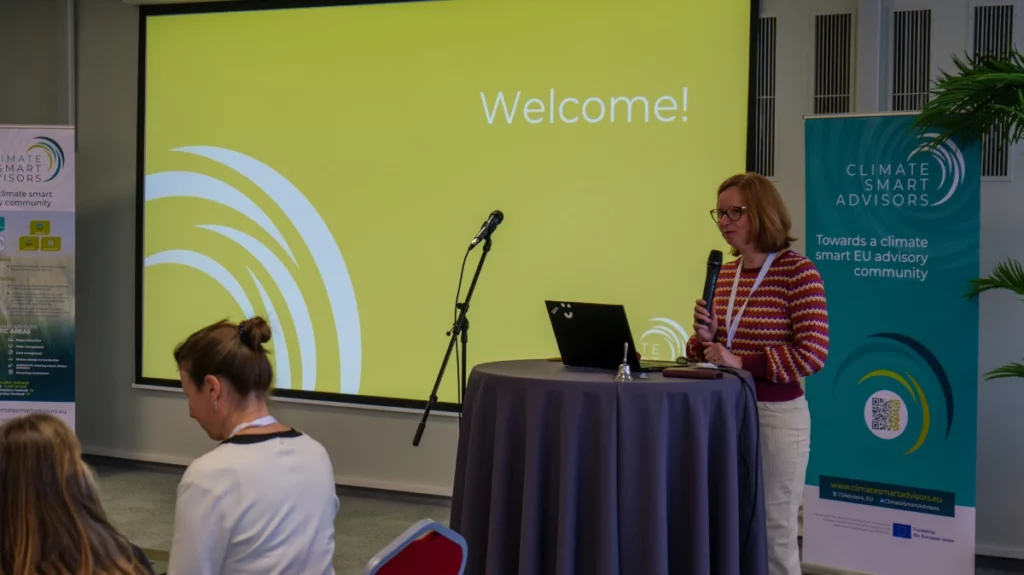
The ClimateSmartAdvisors General Assembly 2024 wrapped up under the stewardship of project coordinator, Lies Debruyne, who said:
“After an intense first year of trying to set this large consortium in the correct position, the project is now ready to move into second gear, where various activities, such as the CoPs, the CoDIEs and the thematic knowledge exchange events, will now start feeding and animating the network”.
The closing session highlighted the assembly’s main discussions and outlined a clear six-month timeline, preparing all participants for upcoming milestones to keep the project on track. The assembly concluded on a high note with the announcement of the scavenger hunt and social media challenge winners, adding an element of fun and fostering strong community ties among attendees.
This year’s General Assembly not only celebrated past accomplishments but also set a forward-looking agenda for continued success and impact. Heartfelt thanks to our Latvian hosts and all the project partners and attendees!
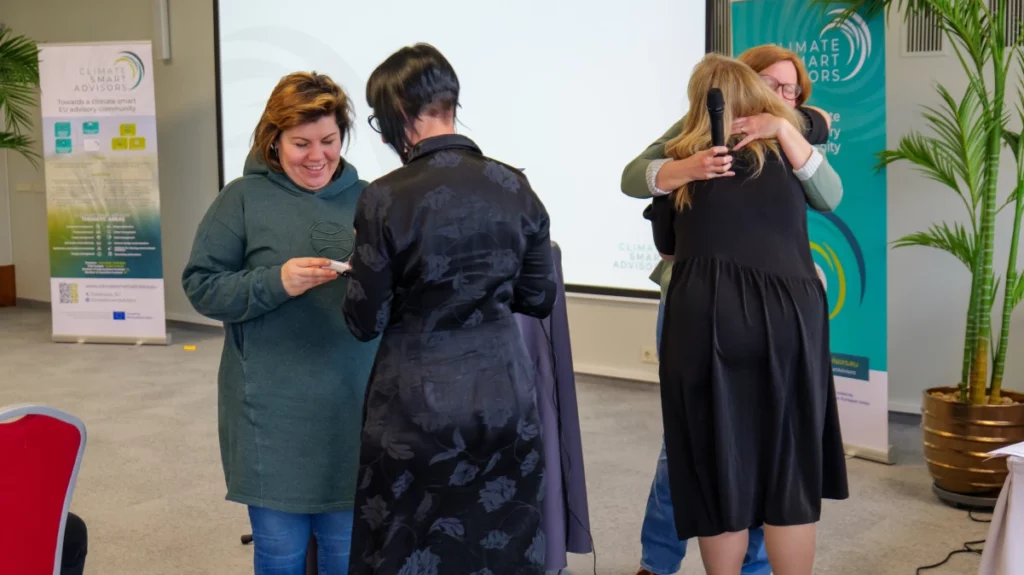
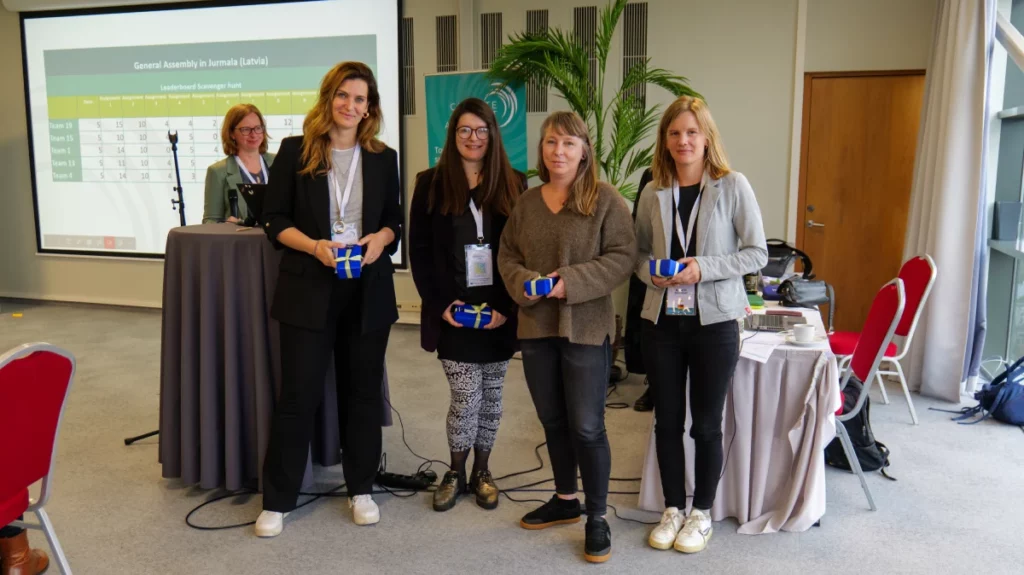
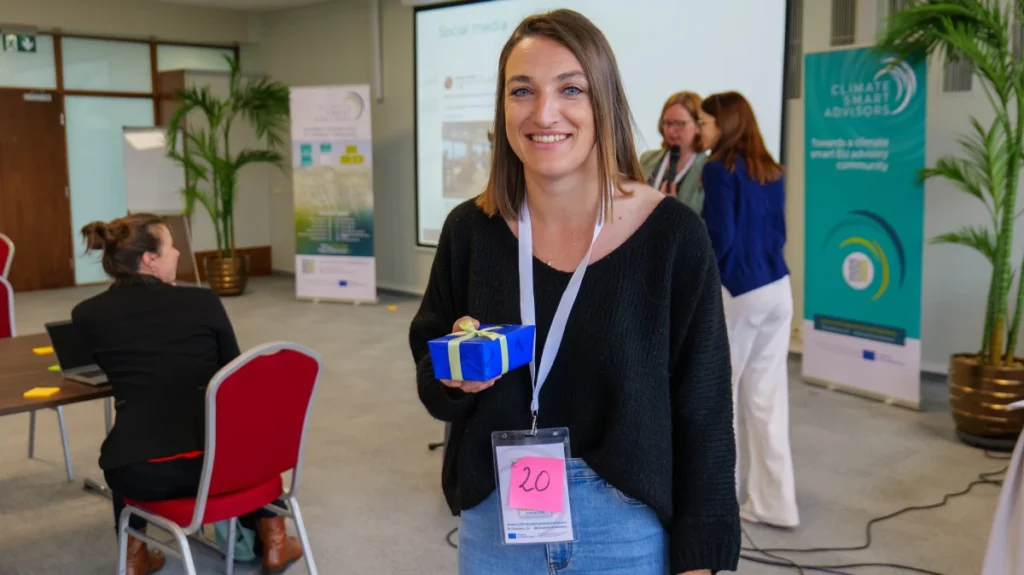
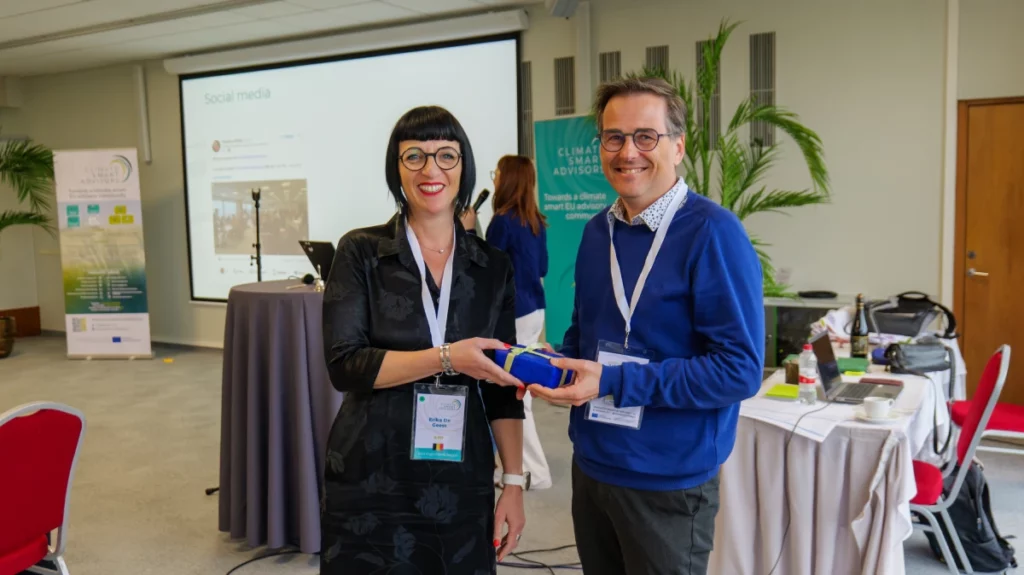
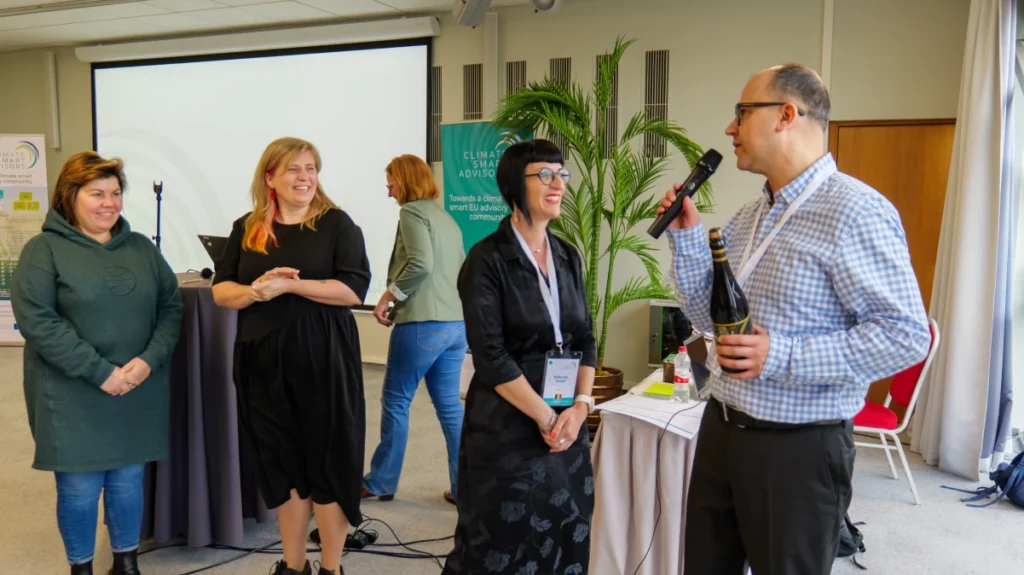
For all the project partners and General Assembly participants, please Access Photos Here
